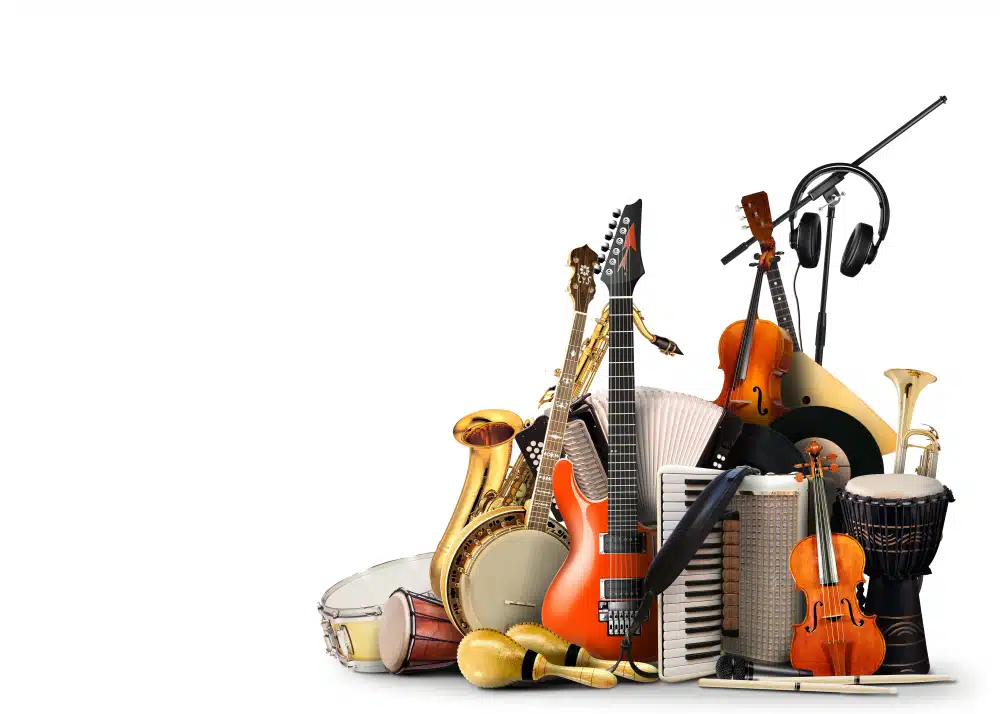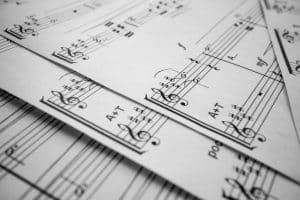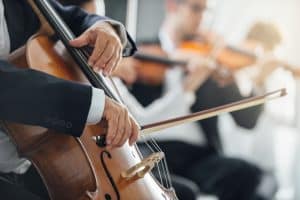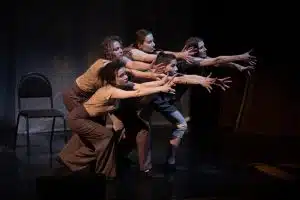Discovering Music Education at the San Francisco Conservatory of Music
Music education plays a crucial role in nurturing aspiring musicians and shaping their artistic journeys. One institution that stands out for its world-class music education is the San Francisco Conservatory of Music. Founded in 1917, the Conservatory has a rich history, exceptional faculty, state-of-the-art facilities, and a profound impact on the vibrant music scene in San Francisco. In this article, we will delve into the various aspects of this renowned institution and explore why it is a top choice for aspiring musicians worldwide.
The History and Legacy of the San Francisco Conservatory of Music
Established in the heart of San Francisco, the San Francisco Conservatory of Music has a storied past that has shaped its legacy as a leading music institution. The Conservatory’s journey began with its founding and early years, where it laid the foundation for excellence in music education. Over the decades, the Conservatory has evolved and grown, embracing new approaches while staying true to its core values. Notably, its distinguished alumni have gone on to make significant contributions to the world of music.
Founding and Early Years
The San Francisco Conservatory of Music was founded in 1917 by Ada Clement and Lillian Hodghead, visionary women who recognized the need for a world-class music education institution on the West Coast. They aimed to provide young musicians with the opportunity to develop their talents and pursue a profession in music. From its inception, the Conservatory embraced a student-centered approach and a commitment to artistic excellence.
During its early years, the Conservatory faced numerous challenges, including financial constraints and limited resources. However, the dedication and perseverance of its founders and faculty members ensured its survival and growth. The Conservatory quickly gained a reputation for its rigorous curriculum and high standards, attracting talented students from across the country.
One of the defining features of the Conservatory’s early years was its emphasis on fostering a sense of community among its students. Regular recitals, ensemble performances, and collaborative projects provide opportunities for students to showcase their skills and learn from one another. This sense of camaraderie and mutual support became a hallmark of the Conservatory’s culture, creating a nurturing environment for aspiring musicians.
Evolution and Growth Through the Decades
As the years passed, the Conservatory continued to evolve and adapt to the changing needs of musicians and the music industry. It expanded its course offerings, introduced new programs, and attracted renowned faculty members who brought fresh perspectives to music education. This evolution enabled the Conservatory to stay at the forefront of innovation and provide its students with a comprehensive and relevant musical education.
In the 1960s, the Conservatory embraced the emerging field of electronic music, establishing a pioneering program that explored the intersection of technology and music. This forward-thinking approach attracted students with a keen interest in experimental soundscapes and electronic composition, further diversifying the Conservatory’s student body and curriculum.
Throughout the 1980s and 1990s, the Conservatory expanded its outreach efforts, reaching out to underserved communities and offering scholarships to talented students from disadvantaged backgrounds. This commitment to accessibility and inclusivity helped the Conservatory become a beacon of opportunity for aspiring musicians who may not have otherwise had access to a world-class music education.
Notable Alumni and Their Contributions to Music
The San Francisco Conservatory of Music boasts an impressive list of alumni who have made significant contributions to the world of music. From Grammy-winning performers to composers and conductors, the Conservatory’s graduates have excelled in various musical disciplines and gained recognition on the global stage. Their achievements serve as a testament to the Conservatory’s commitment to nurturing exceptional talent.
One notable alumnus is John Coolidge Adams, a renowned American composer and conductor who is celebrated for his minimalist musical style. He is one of the most frequently performed contemporary classical composers, known especially for his operatic works that often delve into recent historical events. In addition to opera, his extensive body of work encompasses orchestral, concertante, vocal, choral, chamber, electroacoustic, and piano compositions.
Another notable alumna, Gwendoline See-Hian Yeo, a multi-talented artist from Singapore, is recognized for her diverse roles in the entertainment industry. She has made a significant impact as an actress, musician, and writer. Gwendoline’s notable portrayals include Dr. Kelly Lee in “General Hospital,” Xiao-Mei in “Desperate Housewives,” and Sun Fu in “Broken Trail.” Her distinctive voice talents can be heard in characters like Domino in “Wolverine and the X-Men,” Shinigami in Nickelodeon’s “Teenage Mutant Ninja Turtles,” Hamato Karai in “Rise of the Teenage Mutant Ninja Turtles,” and Lady Shiva in “Young Justice.”
These are just a few examples of the many talented individuals who have emerged from the San Francisco Conservatory of Music. Their success not only reflects the quality of education they received at the Conservatory but also the institution’s ongoing dedication to nurturing artistic excellence and fostering a passion for music.
The Unique Curriculum at the San Francisco Conservatory of Music
At the San Francisco Conservatory of Music, students benefit from a unique and comprehensive curriculum that equips them with the skills and knowledge necessary for a successful career in music. The Conservatory offers a range of academic programs tailored to the diverse needs and aspirations of its students.
Located in the heart of San Francisco, the Conservatory provides students with a vibrant and inspiring environment to pursue their musical passions. With state-of-the-art facilities and renowned faculty members, students have access to world-class resources and mentorship.
Overview of the Academic Programs
The Conservatory presents a comprehensive range of academic opportunities for both undergraduate and graduate students, fostering artistic growth and excellence across various domains within the realm of music. Here’s a detailed list of the programs offered:
Pre-College
The programs at the Conservatory are designed to seamlessly blend private lessons with musicianship courses, both small and large ensemble experiences, master classes, jury assessments, and ample performance opportunities. These initiatives collectively aim to instill a deep appreciation and involvement in music in the lives of young students.
Within the Pre-College division, there exist three distinct programs catering to the unique needs and interests of students:
- Early Childhood Program: This program is tailored to provide developmentally appropriate training, cultivating a strong foundation in performance skills and music literacy. It serves children ranging from 4 to 7 years of age.
- Bridge to Arts & Music (BAM): BAM is dedicated to offering instrumental instruction, musical instruments, academic support, and a sense of community to underserved students, typically falling within the age group of 6 to 12.
- Academy: The Academy offers a comprehensive and immersive Saturday program. It encompasses private lessons, musicianship courses, participation in both small and large ensembles, specialized elective courses, master classes, jury assessments, and numerous opportunities to showcase their musical talents through performances.
Undergraduate Programs:
- Performance: This program empowers aspiring musicians to hone their instrumental or vocal skills under the guidance of accomplished faculty members, enabling them to reach their full artistic potential.
- Composition: Students in this program embark on a creative journey, learning to compose music across genres and styles, from classical to contemporary, and develop their unique musical voices.
- Conducting: Aspiring conductors receive comprehensive training in the art of orchestral and choral direction, gaining expertise in interpreting and leading musical ensembles.
- Musical Studies: This program offers a well-rounded education in music theory, history, and critical analysis, providing students with a deep understanding of the foundations of music.
- Technology and Applied Composition: Students in this program explore the intersection of technology and music, delving into areas like electronic music production, sound design, and the application of technology in composition.
Graduate Programs:
- Performance: Building upon their undergraduate foundation, graduate performance students refine their artistry, pushing the boundaries of their instrumental or vocal capabilities.
- Composition: Graduate composers further develop their creative voices, often working on larger and more complex projects, including symphonic compositions and multimedia collaborations.
- Conducting: Advanced conducting programs enable graduate students to refine their skills and specialize in directing specific types of ensembles, from orchestras to choirs.
- Musical Studies: Graduate-level musical studies delve deeper into music theory, history, and critical analysis, preparing students for careers in research, teaching, and musicology.
- Technology and Applied Composition: Graduate students in this field continue to explore cutting-edge technologies and their applications in composition, sound engineering, and music production.
In each of these programs, students receive a strong foundation in music theory, history, and performance techniques. Simultaneously, they have the flexibility to specialize in their chosen discipline, ensuring a well-rounded education that prepares them for diverse careers in the world of music.
Specialized Music Courses and Training
In addition to their core curriculum, students have access to specialized music courses and training opportunities. These courses cover a wide range of topics, including chamber music, musicology, jazz studies, vocal coaching, and orchestral repertoire. Such diverse offerings allow students to develop a comprehensive understanding of music and explore different genres and styles.
Through chamber music ensembles, students have the chance to collaborate with their peers and refine their ensemble playing skills. They learn the art of musical communication, interpretation, and synchronization, developing a deep appreciation for the power of collective musical expression.
Musicology courses provide students with a historical and cultural context for their musical studies. They delve into the rich tapestry of musical traditions, examining the social, political, and artistic influences that have shaped music throughout the ages.
Interdisciplinary Approach to Music Education
The Conservatory also embraces an interdisciplinary approach to music education. It encourages collaboration between students from different disciplines, fostering a vibrant and dynamic artistic community. This interdisciplinary approach not only broadens students’ musical perspectives but also prepares them for the collaborative nature of the modern music industry.
Through interdisciplinary projects and performances, students have the opportunity to collaborate with dancers, visual artists, and theater practitioners. They learn to integrate their musical skills with other art forms, creating unique and innovative performances that push the boundaries of traditional music.
The Conservatory also offers courses in music entrepreneurship and career development, equipping students with the necessary skills to navigate the professional music world. From marketing and branding to concert production and grant writing, students gain a comprehensive understanding of the business side of music.
Overall, the unique curriculum at the San Francisco Conservatory of Music provides students with a well-rounded education that prepares them for a successful and fulfilling career in music. With a focus on excellence, creativity, and collaboration, students graduate with the skills and confidence to make a meaningful impact in the world of music.
The Faculty and Their Expertise
The San Francisco Conservatory of Music is proud to have a faculty of renowned musicians who are not only dedicated to nurturing young talent but also shaping the future of music. These distinguished faculty members bring a wealth of experience and expertise to their teaching and mentoring roles, ensuring students receive a comprehensive and well-rounded education.
Renowned Faculty Members and Their Achievements
The faculty members at the Conservatory are accomplished musicians in their own right, with impressive achievements that have earned them recognition in the music industry.
They have graced prestigious stages around the world, captivating audiences with their exceptional performances. These faculty members have also received numerous accolades for their artistic contributions, further solidifying their reputation as leading figures in the music community.
Each faculty member specializes in a specific musical genre or discipline, ensuring that students receive guidance from professionals who excel in their respective fields. Whether it’s classical, jazz, contemporary, or experimental music, the faculty’s expertise spans a wide range of genres, providing students with a diverse and comprehensive musical education.
The Role of Faculty in Shaping Music Talents
Faculty members at the Conservatory play a pivotal role in shaping the talents of their students. They understand that each student is unique and possesses their own musical aspirations and goals. With this in mind, faculty members provide personalized attention, offering guidance and support at every step of the student’s musical journey.
Through one-on-one lessons, masterclasses, and ensemble coaching, the faculty helps students refine their technical skills, interpretive abilities, and artistic expression. They create a nurturing and supportive environment where students can explore their musical potential and push their boundaries. Faculty members serve as mentors, inspiring students to strive for excellence and encouraging them to embrace their individuality as musicians.
Faculty’s Approach to Teaching and Mentoring
The faculty’s approach to teaching and mentoring is student-centered and holistic. They understand that music education is not just about mastering technical skills but also about fostering creativity, critical thinking, and self-discovery. Faculty members encourage students to explore their own musical ideas, experiment with different styles, and develop their unique artistic voices.
They create a collaborative learning environment where students can engage in meaningful discussions, exchange ideas, and learn from one another. Faculty members not only impart their musical knowledge but also instill a passion for music and a commitment to artistic excellence in their students. They inspire students to become lifelong learners, constantly seeking new challenges and pushing the boundaries of their musical abilities.
At the San Francisco Conservatory of Music, the faculty’s dedication, expertise, and passion for music are the driving forces behind the success of their students. Through their guidance and mentorship, they empower young musicians to embark on a fulfilling and impactful musical journey, equipping them with the skills and knowledge they need to make a lasting impact in the world of music.
The Conservatory’s State-of-the-Art Facilities
The San Francisco Conservatory of Music houses state-of-the-art facilities that provide students with a conducive environment for learning, practicing, and performing.
Overview of the Campus and Its Facilities
The Conservatory’s campus is located in the vibrant cultural hub of San Francisco. It features dedicated spaces for classrooms, practice rooms, recording studios, and rehearsal halls. These facilities are designed to enhance the learning experience and foster creativity among students. The campus also offers ample opportunities for collaboration and interaction, both within the Conservatory and the broader San Francisco community.
Technology and Equipment for Music Education
Recognizing the importance of technology in contemporary music education, the Conservatory is equipped with state-of-the-art technology and equipment. It provides students with access to cutting-edge music software, recording tools, and audiovisual resources. This integration of technology enhances students’ learning experience, allowing them to explore new dimensions of musical expression.
Performance Venues and Practice Spaces
Performance venues are an integral part of a musician’s education, allowing them to showcase their talent and gain real-world experience. The Conservatory boasts exceptional performance venues, including concert halls and recital spaces, where students can perform solo, as part of an ensemble, or with faculty members. Additionally, the Conservatory provides dedicated practice spaces that cater to the unique needs of various instruments and musical disciplines.
The Impact of the Conservatory on the San Francisco Music Scene
The San Francisco Conservatory of Music plays a vital role in the local music community and contributes significantly to the city’s vibrant cultural landscape.
The Conservatory’s Role in the Local Music Community
The Conservatory actively engages with the local music community, collaborating with other music organizations and participating in community events. It hosts concerts, workshops, and outreach programs, providing opportunities for the public to experience the talents of its students and faculty. Through these endeavors, the Conservatory fosters a sense of artistic community and enriches the cultural fabric of San Francisco.
Collaborations and Partnerships with Local Music Organizations
The Conservatory has forged partnerships with local music organizations, orchestras, and ensembles, enabling students to gain valuable performance opportunities and professional connections.
These collaborations provide a bridge between the academic and professional realms, ensuring that students are well-prepared for a career in music and have access to a supportive network of industry professionals.
The Conservatory’s Influence on San Francisco’s Cultural Landscape
With its diverse and vibrant music programs, the Conservatory has had a profound impact on San Francisco’s cultural landscape. Its talented graduates contribute to the local music scene, performing in renowned orchestras, ensembles, and solo concerts. Additionally, the Conservatory’s commitment to artistic excellence inspires and influences the broader artistic community, fostering a culture of creativity and innovation.
Future Prospects for Students at the San Francisco Conservatory of Music
Graduating from the San Francisco Conservatory of Music opens up a world of exciting career opportunities for students, equipping them with the skills and network necessary for success.
Career Opportunities in Music
Graduates of the Conservatory go on to pursue diverse careers in music. They become professional performers, composers, conductors, music educators, and scholars. The Conservatory’s comprehensive curriculum, combined with the faculty’s mentorship, prepares students for the challenges and opportunities of the music industry, equipping them with the necessary skills and knowledge to launch successful careers.
Alumni Success Stories
The success stories of the Conservatory’s alumni serve as a testament to the institution’s impact. Graduates of the Conservatory have gone on to win prestigious awards, perform on international stages, and collaborate with renowned musicians and ensembles. Their achievements highlight the value of music education from the San Francisco Conservatory of Music and inspire future generations of musicians.
Continuing Education and Lifelong Learning Opportunities
The San Francisco Conservatory of Music recognizes the importance of lifelong learning in the musical journey. It provides continuing education programs, workshops, and masterclasses for alumni and music professionals who wish to further develop their skills and broaden their musical horizons. This commitment to ongoing learning ensures that the Conservatory remains a valuable resource and support system for its graduates throughout their careers.
In conclusion, the San Francisco Conservatory of Music stands as a beacon of excellence in music education, offering a world-class curriculum, distinguished faculty, state-of-the-art facilities, and a profound impact on the local music community. For aspiring musicians, the Conservatory provides a nurturing environment that fosters creativity, technical proficiency, and a deep appreciation for the transformative power of music.
Whether a student seeks a career on the world stage or a contribution to a local community, the San Francisco Conservatory of Music equips them with the tools and opportunities to achieve their goals and make their mark on the world of music.
Having all the necessary information is important before choosing any course of action. AdmissionSight is always here to assist you with any questions or concerns. We have more than ten years of expertise assisting students in successfully navigating the challenging admissions process.
Consult with AdmissionSight and find out what we can do to help you get into the school of your choice by ensuring that you are sufficiently aware and well-prepared for the application process.











































